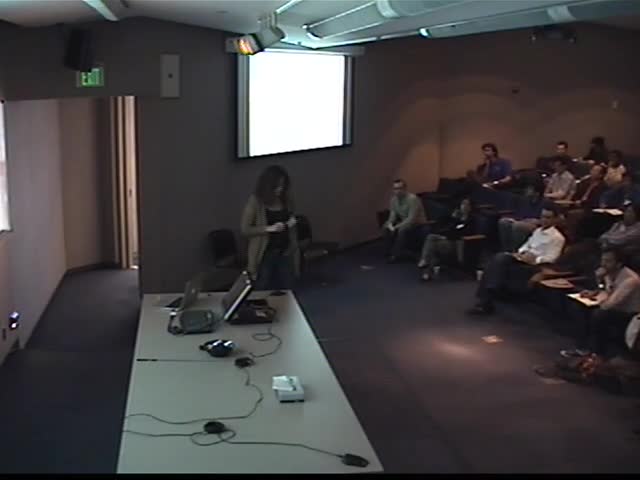How to learn from a single network: Relational learning for social network domains
Presenter
March 28, 2012
Keywords:
- Social networks
MSC:
- 91D30
Abstract
Machine learning researchers focus on two distinct learning scenarios for structured graph and network data. In one scenario, the domain consists of a population of structured examples (e.g., chemical compounds) and we can reason about learning algorithms asymptotically, as the number of structured examples increases. In the other scenario, the domain consists of a single, potentially infinite-sized network (e.g., Facebook). In these "single network" domains, an increase in data corresponds to acquiring a larger portion of the underlying network. Even when there are a set of network samples available for learning, they correspond to subnetworks drawn from the same underlying network and thus may be dependent.
Although statistical relational learning have been successfully applied for social network classification tasks, the algorithms were initially developed based on an implicit assumption of an underlying population of networks---which does not hold for most social network datasets. In this talk, I will present our recent efforts to outline a more formal foundation for single network learning and discuss how the analysis has informed the development of more accurate estimation, inference, and evaluation methods.
